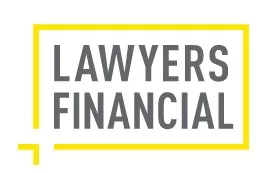It seems so simple. We buy life insurance to protect our spouse, our business partner, and our kids in the event of our early death. But life isn't a one-size-fits all proposition (not by a long shot), and the same goes for life insurance.
We talked to Alison Hughes, Director of National Distribution at Lawyers Financial, about the type of life insurance you rent vs. the type of life insurance you own, and why that distinction matters.
Q. ALISON, WHEN WE HEAR "LIFE INSURANCE," MANY OF US THINK ABOUT GETTING HIT BY A PROVERBIAL BUS. YOU MEET YOUR DEMISE, AND THE BENEFICIARY OF YOUR POLICY GETS A CHEQUE. PRETTY STRAIGHTFORWARD. BUT THERE'S MORE THAN ONE KIND OF LIFE INSURANCE. HOW ARE THEY DIFFERENT?
A. Basically, there's term life insurance and permanent life insurance.
Think of term life as being about if you die too soon, while permanent life is about what happens when you die.
The situation you're describing involves term life insurance. For a set number of years—the term—you pay for a set amount of coverage. If you die before that term is up, the policy pays your beneficiary that entire lump sum of coverage, tax-free.
Let's say you buy a 20-year term life policy with $500,000 of coverage. If you die at any point during those 20 years, your policy will pay $500,000. After 20 years the policy renews at a higher rate or even expires. Either way, it requires revisiting.
Permanent life insurance also pays a tax-free lump sum when you die but has other important benefits. Two big ones are lifetime coverage and monthly premiums that are usually guaranteed to stay the same.
"THINK ABOUT IT AS RENTING VS. OWNING. WITH TERM LIFE, YOU'RE RENTING TEMPORARY COVERAGE FOR A SPECIFIC PURPOSE, LIKE PAYING OFF A MORTGAGE. PERMANENT LIFE IS MORE LIKE AN ASSET THAT'S YOURS TO KEEP."
Q. THAT SOUNDS GOOD, WHAT'S THE CATCH?
A. There isn't one because term and permanent life insurance serve different purposes. Depending on your stage of life, either one can be a good choice, or more often than not, a combination of both.
One way to think about it is renting vs. owning.
With term life, you're renting temporary coverage for a specific purpose, like paying off a mortgage or other debts you have in early-to-mid-life. The monthly premium, relative to the potential benefit, is usually very reasonable. You're paying for peace of mind.
Permanent life is more like an asset. It's not temporary, it can pay dividends, you may be able to borrow cash from it, and (just like term life) it pays a tax-free lump sum when you die. The monthly premium for permanent life can be higher than for term life initially, but you get much more flexibility. It's important to understand the differences to decide which is the better choice for you.
Q. CAN YOU GIVE US AN EXAMPLE?
A. Absolutely. Let's say you're 29 and have just bought your first home. You and your partner chose a five-year, $900K mortgage with the longest amortization you could, to keep your monthly payments affordable. Your combined income qualified you for the mortgage. But if one of you were to die prematurely, the remaining partner would struggle with the payments and might not qualify for the same mortgage upon renewal.
Buying term insurance for your outstanding debt, including this mortgage, is the most cost-effective solution for managing this risk. A lot can change over the next 20 plus years. The goal would be that you've paid down your debts, including your mortgage, and you would no longer need such a large amount of term coverage to protect your family.
But now you're in your early 50s and enjoying a different stage of life. You have investments—some registered, some non-registered. Maybe a personal corporation for your practice with a growing amount of capital. And you have a cottage.
What these assets have in common is the potential for a large tax bill when you die.
Permanent life insurance can be a cost-effective solution to this unexpectedly large tax obligation. Many Canadians choose to buy permanent life insurance to fund these final expenses, rather than spending their savings. This choice allows them to leave the money—and the cottage—in their estate to their loved ones.
WE CAN HELP.
Understanding how life insurance can help you manage risk is an essential part of any financial plan. Talk to a certified financial planner about whether it makes more sense for you to rent your life insurance or to own it outright.
BOOK A FREE FINANCIAL PLANNING MEETING NOW
The content of this article is intended to provide a general guide to the subject matter. Specialist advice should be sought about your specific circumstances.

